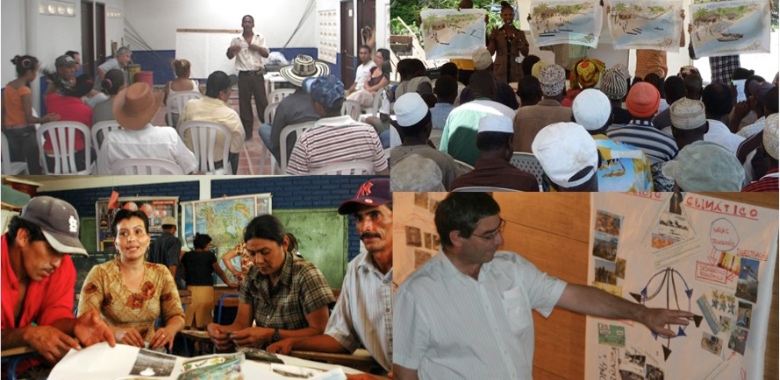Participatory scenario planning in place-based social-ecological research: insights and experiences from 23 case studies
This synthesis analyzes how and why researchers assess social-ecological systems using participatory scenario planning.

The photo above is Figure 3 of the paper, showing scenes from participatory scenario planning processes in four case studies (clockwise from upper left: #13 Colombia, #17 Kenya, #22 Spain, #10 Nicaragua).
This paper (Oteros-Rozas et al. 2015) reviews 23 cases of participatory scenario planning in a wide range of place-based social-ecological research. It finds that the tool has enriched management and research of social-ecological systems by, for example, creating a dialogue between diverse knowledge systems, and raising stakeholders’ awareness of drivers of change that require long-term planning. However, in many cases the longer-term potential of scenario planning to promote collective action is still not known, because of a lack of systematic evaluation and monitoring. The authors see this paper as a starting point to build an international community of practice that can share methods, issues and insights in order to improve the practice of participatory scenario planning, for example within the IPBES’s assessments of ecosystem services and biodiversity.
